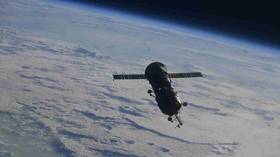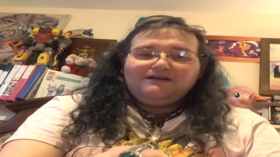Russian cosmonauts to set up greenhouse on International Space Station to experiment with growing various plants in zero gravity

Russian cosmonauts will create a greenhouse in the International Space Station’s newly-arrived Nauka module, with the eventual plan to grow various plants on “an industrial scale” inside the planet’s only inhabited satellite.
That’s according to the Russian Academy of Sciences’ Yuri Smirnov, the leader of the institution’s Biomedical Laboratory at the Institute of Biomedical Problems.
Speaking to TASS news agency on Monday, Smirnov revealed that the Vitacycle-T experiment envisages creating a greenhouse to grow plants en masse. To begin, a small facility will be delivered to the ISS.
Also on rt.com Russia considers adding purpose-made module solely for tourists to proposed go-it-alone International Space Station replacementAccording to Smirnov, the first plant to be grown by Russian cosmonauts will be Napa cabbage. These will then be taken back down to Earth for further research.
“Of course, no one will ban the cosmonauts from using these plants in their diet,” he clarified.
The Vitacycle-T experiment was first made public in 2019 when a prototype was released. It was then announced that the unique system would use a conveyor, allowing it to grow plants non-stop for periods of around 44 to 66 days.
Also on rt.com Moscow to QUIT International Space Station in 2025 unless Washington lifts restrictive sanctions, says Russian space bossThe Nauka module launched from the Baikonur Cosmodrome on July 21 and arrived at the ISS eight days later. The new segment will be used for scientific experiments. It can also generate oxygen for six people and regenerate water from urine. Attached to the module is the European Robotic Arm, which can help install and replace exterior station components without the need to perform a spacewalk.
Like this story? Share it with a friend!














